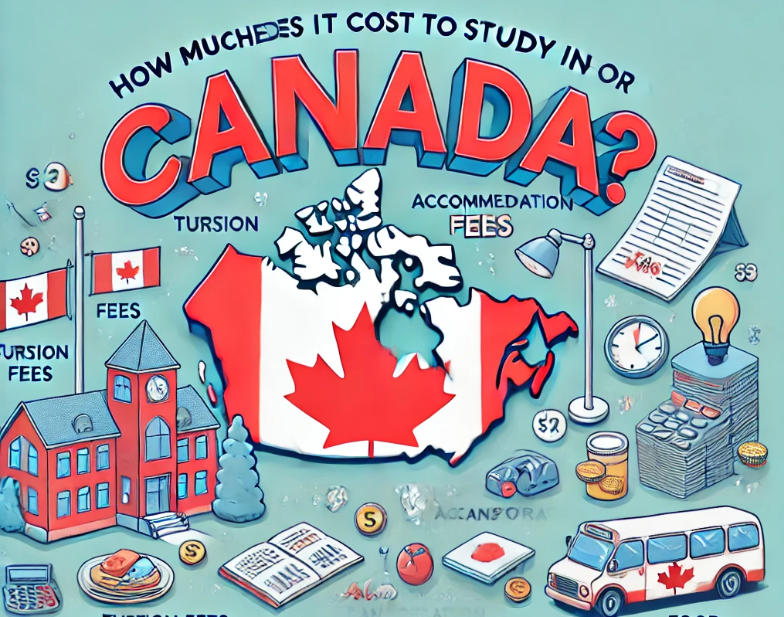- Remittance
- Exchange Rate
- Stock
- Events
- EasyCard
- More
- Download
How to Quickly Transfer Money to Canada? What Are the Costs of Studying in Canada for a Year?
Canada attracts a large number of international students with its high-quality education and diverse culture. However, efficiently transferring money internationally and accurately estimating the cost of studying abroad are concerns for many students and their families. Quick and secure money transfers not only ensure that students in Canada are not affected by financial shortages but also provide peace of mind for parents.
Understanding the annual cost of studying in Canada, including tuition fees and living expenses, helps families plan their finances in advance. This article aims to provide readers with various methods of quickly transferring money to Canada and a detailed analysis of the costs of studying there for a year, aiding students and their families in making thorough financial preparations.

Methods for Quickly Transferring Money to Canada
When choosing a way to transfer money to Canada, several major methods can be considered. Each method has its pros and cons, and selecting the most suitable one can ensure that the funds reach quickly and safely.
Traditional Bank Transfer Traditional bank transfers are one of the most common methods for international money transfers. Conducting international wire transfers through bank counters or online banking is usually highly secure and widely available. In fact, bank fees are relatively low, and banks generally offer more stable exchange rates. Typically, bank transfers take 1 to 3 business days, depending on the processing speed of both banks and the number of intermediary banks involved.
Online Money Transfer Platforms In recent years, online money transfer platforms like TransferWise (now Wise) and BiyaPay have become increasingly popular. These platforms offer low fees and fast transfers, usually completing transactions within 1 to 2 business days.
To use these platforms, you need to register an account, enter the recipient’s information and transfer amount, and complete the transfer through a linked bank card or bank account. BiyaPay is particularly favored for its extremely low fees, with transaction fees as low as 0.5%, no transfer limit, and support for local transfers in most regions or countries worldwide, achieving same-day transfers. It also supports the exchange of over 200 digital currencies such as Bitcoin and Ethereum into major fiat currencies like USD and CAD, which is especially friendly for cryptocurrency traders.
Money Transfer Companies Companies like Western Union and MoneyGram are also common choices. They have numerous global service points and offer fast transfer speeds, typically within minutes to a few hours. Although the fees are relatively high, these companies are very practical for urgent transfers or situations where the recipient does not have a bank account. You can go to the transfer company’s service point or use their online service, provide the recipient’s information, and pay in cash or with a bank card.
Analysis of the Annual Cost of Studying in Canada
This includes not only tuition fees but also living expenses, accommodation costs, transportation fees, and other miscellaneous expenses. Below is a detailed analysis of these costs to help you better plan your study abroad budget.
Tuition Fees
- Provincial Differences in Tuition: Tuition fees in Canada vary by province. Generally, Ontario, British Columbia, and Quebec have higher tuition fees, while other provinces like Manitoba and Nova Scotia have relatively lower fees. For example, tuition in Ontario typically ranges from C$20,000 to C$50,000 per year, while in Quebec, it ranges from C$15,000 to C$40,000. In contrast, tuition in Manitoba usually ranges from C$10,000 to C$20,000 per year, and in Nova Scotia, it ranges from C$12,000 to C$22,000 per year.
- Tuition Differences by Major: Generally, tuition fees for arts majors are lower, while those for science, engineering, and business majors are higher. For example, tuition fees for arts majors range from C$15,000 to C$30,000 per year, while business majors have the highest fees, ranging from C$25,000 to C$50,000 per year.
Living Expenses
- Accommodation Costs: These vary depending on the city. On-campus dormitory fees range from C$500 to C$1,500 per month, off-campus rental costs range from C$400 to C$800 per month, and homestay costs range from C$800 to C$1,500 per month.
- Food Costs: These vary depending on personal lifestyle. Cooking at home costs about C$200 to C$400 per month, while dining out costs about C$300 to C$600 per month.
- Transportation Costs: These depend on the mode of transportation and the city’s public transportation system. A monthly public transportation pass costs about C$95 to C$150.
- Other Costs: These include health insurance, which costs about C$600 to C$800 per year.
Other Potential Costs
When applying to study abroad, you also need to consider application fees and visa application fees. The application fee for each school is about C$100 to C$200, and the visa application fee is about C$150. Travel costs during the study period, including return tickets to the home country, are about C$1,000 to C$2,000 per year, and holiday travel costs are about C$500 to C$1,500 per trip. Other daily expenses such as mobile phone and internet bills cost about C$50 to C$100 per month.
In summary, the total cost of studying in Canada for a year is usually between C$30,000 and C$60,000.
Conclusion
In conclusion, for those needing to transfer money to Canada, understanding and choosing the right transfer method is crucial. For families preparing to send their children to study in Canada, fully understanding the components and scale of study abroad expenses and making reasonable financial plans will provide a solid foundation for the student’s study abroad journey. I hope this article can provide you with useful references and assistance in these aspects. Best of luck!

























